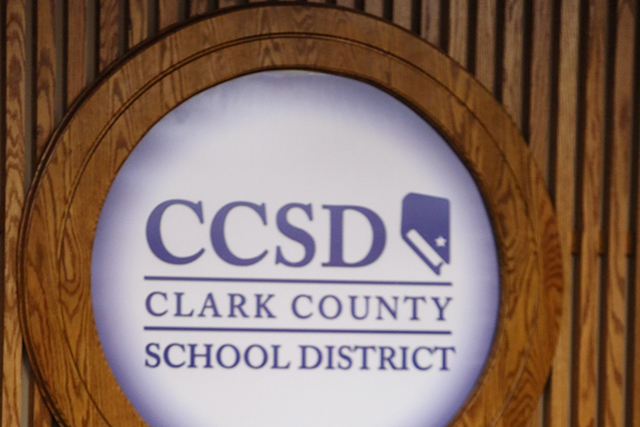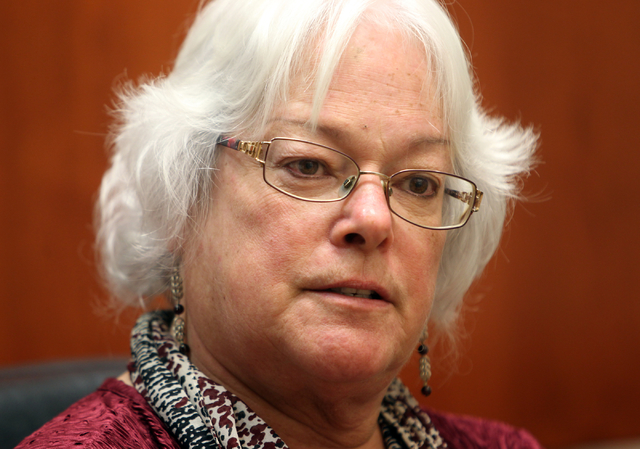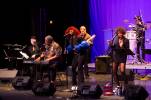CCSD’s secret sex education talks fuel parent ire
They called it appalling, immoral, shocking, reprehensible.
“I will not stand by and have this taught to my children. I will fight to the death,” one mother asserted, while another said through tears: “I will be pressing charges against anyone exposing my children to these things. That includes teachers and the (Clark County) School District.”
They’re talking about sex education or — to put it more clearly — guidelines suggested by a national group as the starting point for schools seeking a comprehensive curriculum, one the Clark County School District is considering. To start the conversation, the district introduced the guidelines in closed-door community meetings two weeks ago. But the document was circulated outside the meetings, angering parents who didn’t know changes to sex education were being considered.
“You’d tell my 9-year-old daughter — this is disgusting and makes me sick — that ‘some boys may ejaculate while they are asleep,’ ” said Chelsea Peterson, a mother of five children who cried as she quoted the guidelines. “And don’t even get me started on the reproductive topic explaining to my kindergartner about vaginal intercourse and, I quote, ‘when a penis is placed inside a vagina is the most common way for a sperm and egg to join.’ ”
The American Civil Liberties Union of Nevada has different concerns. The organization supports the district in replacing its abstinence-based curriculum with one that’s medically accurate while also educating students on homosexual and transgender people, as the district is considering.
In fact, the ACLU told the district it must change its sex education curriculum to comply with state law. Nevada law requires that public accommodations, including schools, not discriminate against any group. However, the district’s current sex education curriculum is “heterosexual only,” ACLU Nevada Executive Director Tod Story said.
“Supposedly, that’s why they’re considering changes to their curriculum,” he said Friday.
But the district is going about the changes in the wrong way, doing so silently and flying in the face of another state law, according to Story. He’s referencing the district’s “sex education community input forums” held Sept. 15-19 that — despite the district’s label — were closed to the community, except for those few invited to attend. “This looks like an attempt to skirt the open meeting law,” Story said. “If it continues, we’d have to consider taking legal action.”
Even though a majority of School Board members weren’t present at any single input meeting, several board members collectively attended all the meetings, which could mean the requirements of Nevada’s open meeting law apply. As of late Friday, the district did not respond to requests for an exact count of board members who attended the closed meetings.
District spokeswoman Kirsten Searer said Friday that the input meetings were for staff to gain input, not board members. Decisions on sex education policy, however, will ultimately be up to the board, not district staff.
Parents such as Terilyn Taylor felt betrayed by the invitation-only meetings.
The secrecy has continued. When a horde of parents not included in the sex education discussions showed at Monday’s School Board meeting, Clark County Superintendent Pat Skorkowsky called them into a conference room with district staff to have questions answered. The media was barred from attending, which was also the case with the input forums.
“What are they trying to hide?” said Story, calling the move an infringement on the First Amendment.
School Board member Carolyn Edwards defended the closed-door input meetings, asserting that the conversation needs to start small with a moderator and representatives from all sides so “people don’t feel too uncomfortable.” The meetings were led by a representative from the Sexuality Information and Education Council of the United States, which also provided the 77-page guidelines causing the uproar.
“I think it was the right way to begin,” said Edwards, emphasizing how this is just the beginning of the conversation. “Long before anything changes, there will be loads of opportunities for public input.”
Curriculum changes could happen as soon as next school year, she said.
The secrecy has led to misconceptions in the community, though.
“We are not, nor have we ever, considered teaching masturbation to kindergartners,” Skorkowsky said in a statement Friday, reiterating that the presented guidelines are just a “starting point for a conversation about what to teach in schools because it is very comprehensive and includes any and all topics that COULD be part of a sex education curriculum.”
The misconceptions don’t stop there. Some parents are convinced their children would be forced to participate in sex education classes.
“I should be the one to set the parameters for the sex education of my children,” parent Karen Condos said to board members Monday.
Condos does have that right, as does every Nevada parent under a state law requiring parents’ written consent for a student to participate in sex education.
Parental control needs to be preserved, Edwards said. “We don’t want to step on anybody’s toes,” she said. “We don’t want to exclude anyone, either.”
But the district’s opt-in policy — requiring parent approval for sex education — excludes those students who need it most, Edwards said. High school student Caitlyn Caruso can testify to that.
“That opt-in form did nothing for my friends, who had no parents at home,” she said Monday.
She advocated for an opt-out system, as have many others, acknowledging that involved parents will be able to opt out if they want. The opt-in system, though, has left many out.
Another high schooler pointed to this as a reason why Nevada’s teen birth rate is seventh highest in the nation, telling board members that abstinence-based education isn’t working.
Schools need to teach more than one ideology, said Caruso, who took sex education in eighth grade.
“I was met by one message and one message only: ‘Do not have sex until you’re married,’ ” she said. “I was told that if I did, I was impure, disgusting and vile.
“As a student, I am appalled by the lack of voice in this room,” she told board members Monday. “I didn’t know what good-touch/bad-touch was. I had no parents at home. Or I had no parents that felt fit enough to teach me.”
Other students, such as James Wheble, left school feeling disenfranchised. He graduated from high school in 2011 and is gay. Homosexuality was never acknowledged in sex education, he said. Teachers only talked about a man and a woman, nothing else.
“I felt really alone,” he said. “I was abnormal or different. I felt my community wasn’t worth being educated about or didn’t exist.”































